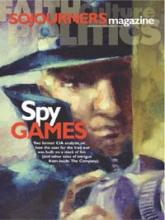Miles and miles of two-lane blacktop crisscross the rural South, forming a web of connections among myriad small towns with declining populations and evaporating economic bases. The 2000 film O Brother, Where Art Thou? demonstrated that the Depression-era rural South was a place every bit as mythic as the ancient Aegean, and its soundtrack sparked a surge in popularity for what has come to be called "Americana" music. But what of the postmodern, post-capitalist South? What mythic portals and spiritual wellsprings can be plumbed amid the unincorporated villages, the mill hills, the hollers, the trailer parks, and the few remaining farm communities that dot those two-lane blacktop roads today? And the churches! We sometimes joke that the county in which I reside has more Baptists than people. And let's not forget the Pentecostals out on the edge of town!
Singer-songwriter Paul Thorn's CD Mission Temple Fireworks Stand is a deep, rhythmic, moving tour through the back roads of "white trash" spirituality. The title song is born of Thorn's observation that Pentecostal tent revivals and roadside fireworks stands often use the same kind of tent. So, Thorn thought, why not combine the two? "Mission Temple Fireworks Stand," he explains in the liner notes, "though not a literal place is a very tangible place where my current spiritual perspective resides." Imagine the art of Howard Finster set to music and you're there.
Read the Full Article
